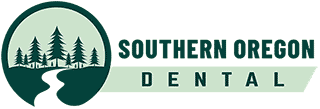How can you tell if you have a dental emergency? These FAQs help you recognize when your should call the dentist right away.
If you’re not sure that your situation qualifies as an emergency, then it’s always better to contact your dentist’s office and check in.
Click on the question to reveal the answer below:
I lost a filling; what should I do?
Make an appointment to see the dentist as soon as possible.
It is important to get the filling replaced before your tooth gets more damaged or you begin to have tooth pain. You can use an over-the-counter dental cement temporarily. However, it is best to check with the dentist before you insert anything into the tooth.
I chipped and broke a tooth; should I come in?
See your dentist as soon as possible.
Rinse your mouth using warm water; rinse any broken pieces and save them. If there’s bleeding, apply a piece of gauze to the area until the bleeding stops. Apply a cold compress to the outside of the mouth, cheek, or lip near the broken/chipped tooth to keep any swelling down and relieve pain.
What should I do if I lose a crown?
Call your dentist for instructions.
If the crown falls off, make an appointment to see your dentist as soon as possible. Bring the crown with you to your appointment.
My tooth was knocked out; should I see my dentist?
Make an appointment with an emergency dentist as quickly as possible.
It may be possible to reattach the tooth.
If possible, retrieve the tooth. Hold it by the crown (the part that is usually exposed in the mouth), and rinse off the tooth root with water if it’s dirty. Do not scrub it or remove any attached tissue fragments. Never force the tooth into the socket. If it’s not possible to reinsert the tooth in the socket, put the tooth in a small cup of water that contains a pinch of table salt. Bring the tooth with you to your appointment.
I think I have an abscessed tooth; what should I do?
Call your dentist as soon as possible.
Abscesses are a serious condition that can damage tissue and surrounding teeth.
An infection can sometimes spread to other parts of the body if left untreated. To ease the pain and if you feel a bump or blister, try rinsing your mouth with a mild salt water solution (1/2 teaspoon of table salt in 8 ounces of water) several times a day.
What happens if I ignore a dental emergency?
Dental emergencies and/or and injury to the teeth or gums should not be ignored. Ignoring a dental problem can increase the risk of permanent damage. Often a prompt visit will help you avoid the need for more extensive and expensive treatment down the road.
